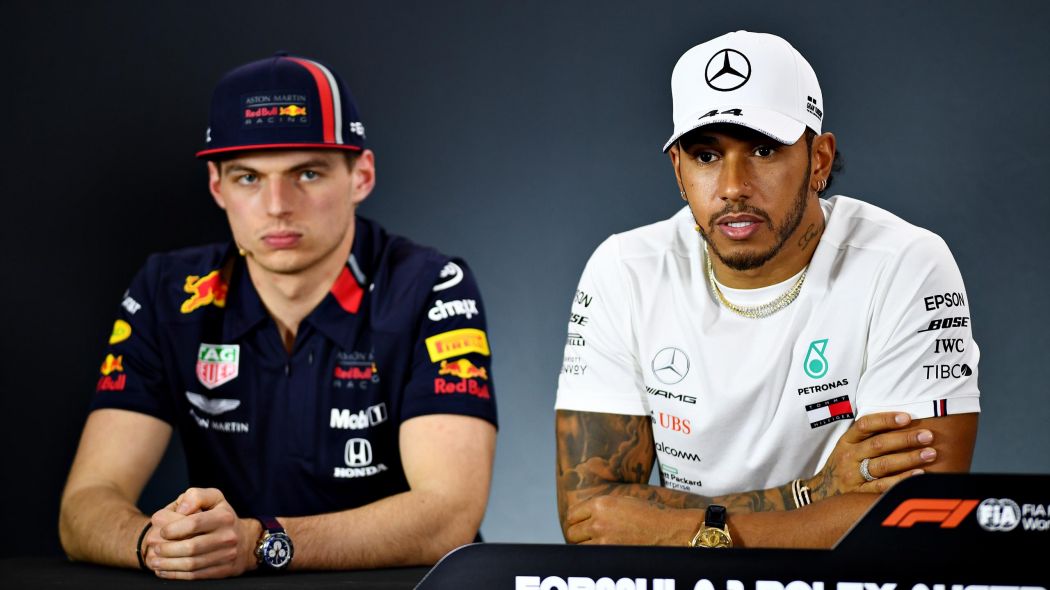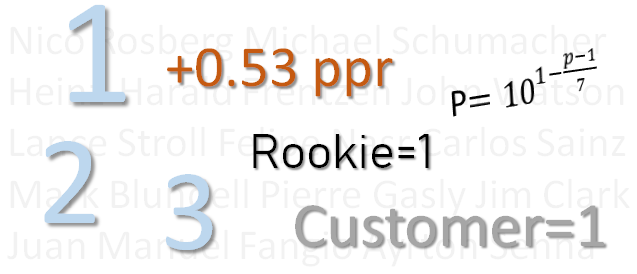Category Age and Experience

2019 f1metrics end of season report
With the 2020 season making a very late start, due to COVID-19, it seems apposite to finally release this belated 2019 analysis. If the sport can pick up and continue under such difficult conditions, this blog surely can too. To those who requested this much earlier, I am sorry for the delay. Life got in […]

The f1metrics top 100
Who was the greatest F1 driver of all time? It is an endlessly debated question amongst fans and pundits alike. If the only aspect we care about is the number of titles or grand prix wins, then the answer is straightforward. Yet, as F1 fans, we recognize that the question is far more complicated. F1 […]

Historical hypotheticals: Part V (Gilles Villeneuve & Michael Schumacher)
While most of the work I do on this blog is fairly serious analysis, this series has been an enjoyable, less serious side project. This is the final part of this five-part series, in which I apply the f1metrics model of driver and team performance to simulating historical hypothetical situations. If you want to check […]

Historical hypotheticals: Part IV (Alesi, Behra, Cevert)
Welcome to the fourth part of this five-part series, in which I apply the f1metrics model of driver and team performance to simulating historical hypothetical situations. This time, it’s a French edition, covering three famous French drivers who didn’t get to deliver their full potential in F1. If you want to check out the previous […]

A new f1metrics model
Recently, I decided it was time to make some improvements to the f1metrics model. Modeling is usually an iterative process. A model is defined, its performance is evaluated, and the lessons learned are fed back into the model definition. This process can in theory go on forever. Models are (by definition) reduced abstractions of […]

Historical hypotheticals: Part III (Bellof and ex-champion comebacks)
Welcome to the third part of this five-part series, in which I apply the f1metrics model of driver and team performance to simulating historical hypothetical situations. If you want to check out the previous articles in this series, they are linked here: Part I (Senna, Pryce, Brise) Part II (Kubica, Clark, Donohue, Revson) Method For […]

Historical hypotheticals: Part II (Kubica, Clark, Donohue, Revson)
Welcome to the second part of this five-part series, in which I apply the f1metrics model of driver and team performance to simulating historical hypothetical situations. Consider this a quantitative approach to tackling some popular but difficult to resolve talking points in Formula 1 history. The point of this series is not to be taken […]

Historical hypotheticals: Part I (Senna, Pryce, Brise)
What if Ayrton Senna had survived the crash at Imola 1994? What if Robert Kubica had never entered that fateful rally? The history of Formula 1 is sadly abundant with drivers cut down at or before their peak. In this five-part series, I will apply the f1metrics model of driver and team performance to simulating […]

2018 preseason analysis
With the wraps off the new halo-adorned cars, we launch into 2018. There are several major sources of intrigue at the dawn of the season. Can Renault, with three top-budget teams now in their ranks, take the fight to the Mercedes or Ferrari works teams? By what margin can 2018 cars exceed the already record-breaking […]

2017 junior driver rankings
As we wait for the 2018 season to fire up, and as Williams resolve the Kubica-Sirotkin-Wehrlein trilemma, it seems a good time to update the annual junior driver rankings. As in previous years, I’m using a simple scoring system that can be easily computed by hand. It takes into account the different tiers of junior […]
Recent Comments